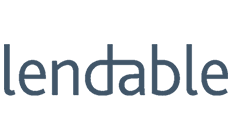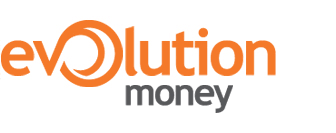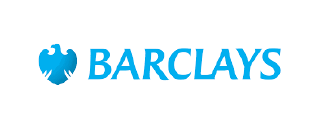Our Lenders
We work with Lending Expert to give you access to a panel of leading lenders well placed to meet your needs at the lowest rates.










Interest only mortgages are a popular choice with landlords, and with people who want flexibility in their mortgage plans. Here, Proper Finance explores some commonly asked questions surrounding interest only mortgages, including how they differ from capital repayment mortgages.
What Is an Interest Only Mortgage?
An interest only mortgage is a mortgage product in which you make monthly payments that cover only the interest you have accrued on the mortgage. At the end of your mortgage, or when you sell your property, you will need to pay the full mortgage amount (minus the interest, which you have been paying monthly) in one lump sum.
The most common type of interest only mortgage is called a buy-to-let interest-only mortgage (BTL), which is used by landlords for their rental property. This type of mortgage is popular because landlords can sell the property at the end of the mortgage term and use their profits to pay off the capital owed instead of paying the lump sum.
Partnered with
What’s the Difference Between Interest Only and Capital Repayment Mortgages?
An interest mortgage is when you make monthly payments of only the interest charges of your mortgage loan. A capital repayment mortgage, also known as a repayment mortgage, is when you pay both the capital and the interest.
With capital repayment mortgages, the monthly payments are far more expensive, but you will pay off the whole loan at the end of the term, not just the interest.
Is It Better to Get an Interest Only or a Capital Repayment Mortgage?
There are pros and cons to both. With an interest only mortgage, your monthly repayments will be cheaper, but there is a higher chance of negative equity. This leaves you more exposed to fluctuations in house prices. The total amount of interest you pay on an interest only mortgage is also higher than that of a capital repayment mortgage.
With a capital repayment mortgage, the monthly payments are calculated so that the loan is entirely paid off by the end of the mortgage term. However, the monthly payments of capital repayment mortgages can be unaffordable for many people, especially those who are just starting their careers.
How Are Interest Only Mortgages Calculated?
The amount of interest you owe is calculated, and divided up by the number of months you have in your mortgage term.
For example, if you borrow £200,000 on an interest only basis at an interest rate of 6.5%, with your mortgage term set to 25 years, then you would pay £500 each month.
Can I Pay off an Interest Only Mortgage Early?
Yes, but there might be a cap on the amount you can repay without charges. Some mortgages have an Early Repayment Charge (ERC) which will fine you for paying off your interest only mortgage early.
Check your mortgage terms to see whether there are any repayments limits or charges.
What Happens at the End of an Interest Only Mortgage?
When you come to the end of your mortgage, you pay back the capital you borrowed to buy your house. This is paid in a lump sum. After this is paid, you own your home in full, and have no more mortgage debt.
What Happens if I Can’t Pay the Lump Sum of My Interest Only Mortgage?
If you cannot repay your loan in full, there are two main options you can take:
- Get an extension: This gives you more time to pay your mortgage.
- Get a remortgage: This is when you pay off one mortgage with the proceeds from a new mortgage using the same property as security.
What Are the Benefits of Interest Only Mortgages?
The main benefit of an interest only mortgage is the flexibility. People are able to make lower payments initially, and then pay more when their income or savings increase years down the line.
This is also a good option if you are planning to sell the property for more than you initially bought it for. The profit could be enough to repay an interest only buy to let mortgage, for example. The lower monthly payments could free up money to spend on refurbishments, or on working on other properties in your portfolio.
What Are the Disadvantages of Interest Only Mortgages?
The biggest disadvantage is that you will pay more interest overall with an interest only mortgage compared to what you would pay in a repayment mortgage. This is because the amount of interest you pay on a repayment mortgage decreases over time, but with an interest only mortgage it does not. This means you end up paying more, overall.
Another disadvantage is the potential early repayment fees. This is when your provider may charge you extra to make early repayments.
What Should I Do Before Applying for an Interest Only Mortgage?
Assess Your Alternatives
Try and understand the different types of mortgages available before you commit to one. See how they fit not only your present budget but also how well they align with your future needs.
Check For Charges
When you look at interest only mortgages, be sure to check whether there are any fees, penalties, or charges on early repayments.
Improve Your Credit Score
Lenders use your credit score to help them decide whether to give you a mortgage. A better credit score signals that you will be a low-risk, reliable borrower, meaning you are more likely to be approved.
Think About Repayment Plans
Lenders will likely want you to have a suitable plan in place to pay off the lump sum at the end of your mortgage term. Think about how you plan to afford this payment, which risks are involved, and how to give your lender evidence of this repayment plan.
What Do I Need to Get an Interest-Only Mortgage?
Although you will have to submit an application, you will be more likely to get approved if you have the following a deposit, and an idea of how you intend to repay the capital costs at the end of the mortgage term. This cannot just be ‘selling the property’, just in case the value decreases.
These plans can include investment ISAs, endowment policies, and cash savings. Your lender may periodically check up on these repayment plans.
Can You Switch From Interest-Only to Repayment or Vice Versa?
Yes, although you need to check with your lender to see if they allow you to do this. If not, you will have to wait until your current deal ends, and then see whether you can remortgage to a different deal.
If you switch from an interest only mortgage to a repayment mortgage, your monthly payments will be higher. If you switch from a repayment mortgage to an interest only mortgage, you will still owe all the unpaid capital you have left by the end of the mortgage.
Partnered with